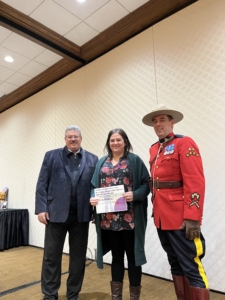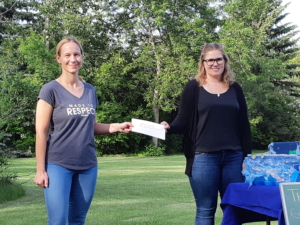Victims deserve support and a voice in true crime stories
For many of us, we are highly fascinated with true crime stories. From podcasts to Netflix series, the genre of true crime continues to grow and can spur many important conversations around social justice inequities. However, it can also resurface trauma for victims and their loved ones who are impacted by these crimes.
Such is the case in the recent Netflix series Dahmer – Monster – The Jeffrey Dahmer Story, the dramatization of real-life events that occurred in Milwaukee, Wisconsin from 1978-1991, depicting the horrific and criminal acts of serial killer Jeffrey Dahmer. The television series, directed by Ryan Murphy, debuted on Netflix in October 2022 and became the second most watched series on the streaming platform.
Crime television shows, both dramatic and documentary style, have been long established. Shows like Law & Order: Special Victims Unit and Crime Beat are staples in the true crime genre. What these shows have in common is their focus on impact of the crimes on the affected communities. They are created with care and detail to honour the victims’ stories.
The concern with these types of series and films is not the genre itself, but the possibility of glorifying the serial killers.
Dahmer – Monster is a deep dive into the killer’s life and left many viewers with the impression that it was anything other than victim-centred, appearing to glorify Dahmer’s horrific criminal acts. The series failed to show the impacts of the crimes on the victims, their family members, loved ones and the community at large. It could be thought Dahmer – Monster focused on sensationalizing the victims and their family’s pain.
A question that should be asked by a viewer is not why the serial killer became this way, but how the crimes impacted society. Like in the case of Dahmer, there are many social justice inequities that can been highlighted, such as the impact of the crimes on the black and LGBTQ+ community along with racial and policing issues in Milwaukee.
The victims connected to all of these stories have loved ones, family members and friends who are still walking around today. Each show, book and retelling of the story asks them to relive their trauma and loss.
Another question that should be asked of the true crime genre is if this story needs to be told once again in such a dramatized fashion? Perhaps the answer can be “yes” if the series or story focuses on the impact of the crimes and has a victim-centred narrative.
The Central Alberta Support Centre (CASASC) is a place of support for victims of sexual assault and violence. Along with providing specialized police and court support, CASASC offers supportive reporting. In a nutshell this victim-centred program provides victims of historical sexual assault options on reporting in a supportive and comfortable atmosphere outside of the detachment.
As a collaborative program between the Red Deer City RCMP and CASASC, supportive reporting allows victims to meet with a plain-clothed RCMP member at a comfortable place and time to ask questions and receive information about the criminal justice system process, before deciding to report or not.
CASASC also offers a 24 hour help line for those looking for support with dealing with sexual violence impacts. Call or text 1-866-956-1099, or webchat at www.casasc.ca for confidential support, information and referrals.
Sarah Maetche is the communications and administration manager at the Central Alberta Sexual Assault Support Centre.
Article as published in the Red Deer Advocate on January 10, 2023.



 Tuesday, Dec. 1st is Giving Tuesday, a global movement for giving and volunteering which takes place each year after Black Friday.
Tuesday, Dec. 1st is Giving Tuesday, a global movement for giving and volunteering which takes place each year after Black Friday.
